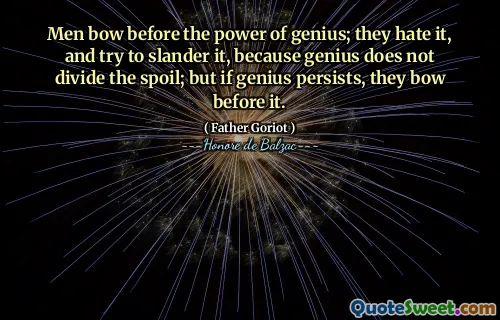"Father Goriot," a novel by Honoré de Balzac, explores themes of sacrifice, ambition, and the complexity of human relationships. The story is set in 19th-century Paris, focusing on the lives of residents in a boarding house. The protagonist, Eugène de Rastignac, is an ambitious young law student who becomes intertwined with the lives of two prominent figures: the enigmatic businessman Goriot and the alluring yet manipulative young women of Parisian society.
Goriot, a once-wealthy merchant, sacrifices everything for the success of his daughters, who ultimately abandon him for their social aspirations. Rastignac, drawn into the seductive Parisian elite, faces moral dilemmas as he must choose between his ambitions and personal integrity. His relationship with Goriot provides insight into the costs of societal ambition and the nature of love and loyalty.
The novel paints a vivid picture of the struggles of a burgeoning middle class against the backdrop of a rapidly changing society. Balzac's nuanced portrayal of characters reveals the tension between personal desires and societal expectations, making "Father Goriot" a timeless exploration of human motivations and social dynamics.
More »
Today Birthdays
1729 -
Edmund Burke
1949 -
Haruki Murakami
1954 -
Howard Stern
1876 -
Jack London
1993 -
Zayn Malik
1951 -
Kirstie Alley
1863 -
Swami Vivekananda
1923 -
Alice Miller
1987 -
Naya Rivera
1825 -
Brooke Foss Westcott
1944 -
Joe Frazier
1951 -
Rush Limbaugh
1964 -
Jeff Bezos
1978 -
Jeremy Camp
1628 -
Charles Perrault
1856 -
John Singer Sargent
1970 -
Kaja Foglio
1953 -
Rick Santelli
1986 -
Gemma Arterton
1968 -
Raf Simons
1958 -
Christiane Amanpour
1966 -
Olivier Martinez
1996 -
Ella Henderson
1917 -
Maharishi Mahesh Yogi
1949 -
Ottmar Hitzfeld
1928 -
Ruth Brown
1968 -
Heather Mills
1946 -
George Duke
1968 -
Rachael Harris
1923 -
Ira Hayes
